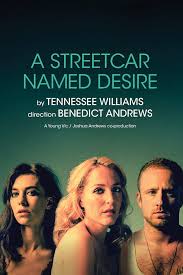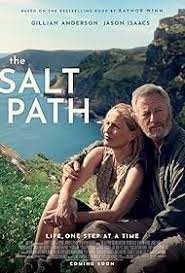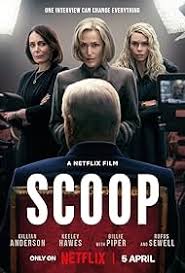Displaying items by tag: Gillian Anderson
Streetcar Named Desire, A, National Theatre Live


A STREETCAR NAMED. DESIRE-National Theatre Live
UK, 2014, 188 minutes, Colour.
Gillian Anderson, Ben Foster, Vanessa Kirby, Corey Johnson.
Directed by Benedict Andrews.
A Streetcar Named Desire is considered one of the great American plays of the 20th century, with Tennessee Williams named alongside Eugene O’Neill and Arthur Miller. It made an impact in 1947 with its down-to-earth themes, class differences, transition from old ways to modern, mental illness. And the setting is New Orleans, at the end of a line of streetcars, the destination, ironically because of the motivations of the characters, Desire.
Tennessee Williams had very strong career from the 1940s to the 1960s, many of his plays turned into celebrated movies. In fact, the 1951 film version of Streetcar, Oscars for Vivien Leigh, Karl Malden, Kim Hunter, and nomination for a smouldering Marlon Brando, is still considered a classic. Since then, many stage productions, many filmed versions for television.
This performance was for the National Theatre in 2014, and filmed for National Theatre Live. It has been widely seen and a decision made to re-release it for 2025.
As a filmed play, the audience sees the very creative set, the shape of a small house, upstairs as well, the frames for the room, some curtains to be pulled back and forth, theatre in the round, different views as the characters move around within the house as well as outside. And, for the change of scenes, lights dim, some reverberating music, the actors and stagehands all coming onto the scene to rearrange furniture, to clean up mess, the audience caught up in this theatricality.
And one of the main reasons for seeing this version is the presence and performance by Gillian Anderson, American, The X-Files, but spending much of her life and career in the UK, films and television, her performance in The Salt Path released at the same time as Streetcar. She is decaying southern Belle, Blanche Dubois. She offers a powerful performance, highly emotional, and, not just hearing her speak her lines but with close-up, the intensity of her body language, a dramatic focus on her face and emotions. And, it is summed up with her final line of the play, so often quoted, “I have always relied on the kindness of strangers.”.
Ben Foster as Stanley Kowalski offers quite a different interpretation from Marlon Brando. He is an ordinary man of the suburbs, with friends at the local bowling alley, playing poker at home, devoted to his wife, but with macho attitudes, often erupting in anger and instances of sexual aggression. Vanessa Kirby, who is to emerge in successive years with a strong stage and screen reputation, is Stella.
The tone and the costumes for this interpretation are very much 21st-century, and some anomalous moments with the use of a mobile phone and references to long distant calls and talking with the operator. Stella and the other women in the play with their costume design, often brief and minimal, might have been looked down on in 1947. But, Blanche is the complete contrast, very much the look and dresses of that period.
This is a long play, especially the second half with its dramatics of Blanches delusions, her fantasies, and not wanting to be seen in the light, her mental disturbances. But, there are ordinary themes, the gentlemanly Mitch and his attentions to Blanche, Stella and her pregnancy, Stanley and his mates.
And, finally, a great deal of pathos as the doctor and the nurse arrive to take Blanche away, their walking slowly around the house set, the audience having time to reflect on what they have seen, and absorb their experience of sharing the sadness and pathos of Blanche’s decline.
Salt Path, The

THE SALT PATH
A, 2024, 115 minutes, Colour.
Gillian Anderson, Jason Isaacs, Hermione Norris.
Directed by Marianne Elliott.
The depth of enjoyment of The Salt Path may well depend on how audiences identify with walking, hiking, or being observers and admirers of walkers and hikers. The Path runs along the south-western part of the coast of England, several hundred miles of walking, hills, beaches, crags and cliffs, passing through small towns. And this is where the audience accompanies the central characters, husband and wife of many years, Moth and Ray.
The strength of the film is very much due to the central performances. Gillian Anderson is the wife, Ray, Raynor Winn the author of the bestselling book on which the film is based (and she serves as one of the producers). Jason Isaacs is Moth, the husband, a strong character, but diagnosed with a rare and severe illness, impairing action in his life side, his limp, difficulty in swallowing, but a determination to live with but go beyond his illness.
There have been married for many years and the two actors are able to convey most powerfully the bond between the husband and wife, love, the devotion, the care, the mutual understanding and appreciation. This perspective is one of the great values of the film.
However, hard times. Business difficulties, unfamiliarity with the law and their losing their case, leading to the loss of their farm. They are homeless and make the decision to walk, following the path to Lands End.
As suggested, enjoyment of the film will depend on audience response to walking, identifying and sharing the literal ups and downs, difficulties and joys, encounters with cranky people objecting to them camping, friendly people who are supportive with food. The couple had very little money, their tent and all their belongings in their packs, and they walk. Walkers will appreciate their journey, hikers will be able to make comparisons from their own experiences. And the rest of us will be watching with some kind of admiration with moments of apprehension.
The look of the film is very British, the characters, the landscapes, behaviour in the towns but with some moments of exhilaration as, stuck for money, Moth being identified wrongly with poet who is doing the walk, his actually making a powerful recitation of poetry in a town square, and the admiring audience willing to add to the collection.
They do have a friend, Polly, who does offer some help, accommodation, Moth doing repairs and, surprisingly, Ray working hard in a shearing shed, wool collecting, giving them some money to establish themselves.
The film has been directed by Marianne Elliott, a director better known for screen adaptations of theatre performances of significant plays, Alls Well that Ends Well, Angels in America, War Horse.
The finale offers interesting information, the decisions that Moth and Ray make about further studies, helping local farmers, and the status of Moth’s health. Ray’s account of the walk and their situation was a bestseller, an inspiration to the many who have read it. And the film will and to this admiration.
- The title, the name of the walk, South-west England, the coast, the rugged cliffs, the sea, the hills, the paths, the towns? The musical score?
- Based on a true story, the central characters, their financial situation and the farm, the decision to walk, Moth and his rare disease? The episode on the walk, people encountered, friendly, hostile? The achievement?
- The final information, Moth and his studies, health? Ray, her work, writing the book, success? Producer on this film?
- The situation, business, the law, losing the case, the abrupt reaction of the lawyers and departure, losing their house? The meeting with their children, the bonds with their children, their studies? Homeless, the decision to walk?
- The bond between Moth and Ray, the years of marriage, their love, devotion, care? The flashbacks during the walk, filling in something of the story? The scenes of love and tenderness between them?
- Moth, his age, the visits to the doctor, diagnosis of his illness, Ray unwilling and denying? Moth and his medication, determination, not taking the medication, difficulties in walking, his left side, difficulties in swallowing? The prognosis? Episodes during the walk? Yet his continued determination?
- Ray, strength of character, decisions, money, the maps, her making annotations? The financial situation, Moth and his grant, bank account, the withdrawal, lacking money? And the episode of Moth and his recitation in the square, the happy response, the collection? And later Ray giving money to Sealy?
- The development of character during the walk, the indications of distances walked, Moth, agreeable and friendly, determined, his turn and illness? Ray, determination, support?
- Cranky passers-by, criticising them camping, the proprietor closing the shop, no Cornish pasties? The sympathetic server, giving them the pasties, the scene with her boyfriend? Friendly passers-by and comments?
- Sealy, her aggressive boyfriend, the invitation to follow, her walking behind, joining them, the effect on her, encouragement, going home, Ray giving her some money?
- Polly, friendship, critical, supportive, eventually allowing them to stay, Moth and his repairs, offering them some security? Ray and her working in the wool shed? Payment and support?
- Their adventures, the opening sequence and the tide coming in, its repetition later, old, clothes, washing, food, noodles or pasta, the bottles of water?
- The episode with Sealy, friendship, her arrogant boyfriend, the invitation, her following, the walking and sharing, cabarets encouragement, her return?
- Audience identification with Moth and Ray, the situation, the homelessness, the walking, the struggles, the achievement?
Scoop/ 2024

SCOOP
UK, 2024, 102 minutes, Colour.
Gillian Anderson, Rufus Sewell, Keeley Hawes, Billie Piper, Romola Garia, Amanda Redmond, Conor Swindells, Jordan Kouame, Richard Goulding, Alex Waldmann.
Directed by Philip Martin.
Pre-review comment about words and changing meanings. Perhaps we think of scoop in connection with ice cream. One definition of the word is: a utensil resembling a spoon, with a short handle and a deep bowl, used for removing dry or semi-solid substances from a container. But, for quite some time, Evelyn Waugh used it for the title of his 1938 novel, scoop as: a piece of news published by a newspaper or broadcast by a television or radio station in advance of its rivals.
Many will remember the 2019 BBC interview with Prince Andrew and his connection with sexual predator, Jeffrey Epstein, criticisms of his behaviour and friendship, photos of the two, public interest especially at the time of Epstein suicide in jail. And, there are accusations against Prince Andrew. The Prince, and the Palace, agreed that he could be interviewed on the prime BBC program, Newsnight. It was meant to be a vindication of Prince Andrew. He spoke confidently but the consequences were disastrous leading to his retiring from royal functions and losing his honours.
This is a very interesting look at the background of getting this interview to air. It is a focus on Prince Andrew himself and not any analysis of Jeffrey Epstein. There have been many documentaries on this subject. Rather, the initial focus is on the brashly self-confident producer, Sam McAlister (Billie Piper), working outside expect to norms and procedures, taking initiatives to the sometimes disapproval of her colleagues. She had connections, was alert to opportunities, to meetings, phone calls, conversations. And we see in some detail how she was able to persuade Prince Andrew’s staff, especially his very loyal assistant, Amanda Thirsk (Keeley Hawes) as well as the BBC authorities.
The decision was that skilled interviewer, Emily Maitlis (Gillian Anderson) would front the interview. She is presented as confidently idiosyncratic. But she prepares, works carefully on the questions, and we see in some detail sections of the interview, her timing, her probing, and Prince Andrew (Rufus Sewell looking very much like the Prince) offering his answers. Pleased at the end of the interview.
However, the public response was very negative, the public not believing his comments about Epstein and his friendship, staying with Epstein in New York, the accusations of the young woman against him, and his remembering taking his children for a pizza, his comments that he did not sweat at the time…
While this is an interesting film with a perspective on members of the British Royal family, it is very much a film about the media, enthusiastic and enterprising producers, BBC politics, procedures and protocols, astute interviewers, and the power of television and public opinion.
- The title, the world of media, scoops, significant stories, sensational stories, investigations, public exposure?
- The film based on actual characters and events? Audience awareness of the characters, of the events? Jeffrey Epstein and his sexual abuse? Ghislaine Maxwell? Prince Andrew?
- The focus on the interview with Prince Andrew? The film not trying to explore Jeffrey Epstein and his career crimes, suicide? The situation for Prince Andrew, the arrests of Jeffrey Epstein, his suicide? The photo from 2010 in the park? The situation for the media, for Buckingham Palace, for an interview, Prince Andrew and the media, the world understanding him? The backfire?
- The film’s commentary on the media, the BBC and its aims, serious, wider audiences? The press, television, photojournalists – and the opening with the journalists trying to photograph Jeffrey Epstein, his house, people coming in and out, the young women over the years, Prince Andrew, the pursuit in the park, getting the best position, successfully getting the photo? Its being published? The effect on the Royal family, Prince Andrew, his staff?
- The portrait of Prince Andrew, reversals performance, made up like the Prince? His mannerisms, way of speech? An opportunity for the audience to see Prince Andrew and understand him better – or worse? His staff, Amanda and her long devotion, admiration for the prince, his reliance on her but seeming not to notice? Employing the press agent, the discussions about his appearance on television, the scenes of his public work and charity? People not attending? The suicide, the pressure on the Prince? His consciousness of his mother? Memories of his mother coming his hair in the past? The decision to go on television, the meeting with Emily Maitless and Sam McAllister, the presence of the Princess Beatrice, her frank comments about her father and reputation? His agreement for the television interview?
- Sam McAllister, the film based on her book, her role as producer, determined, the background of her mother encouraging her, her son and his girlfriend, and her care for him? The role of the BBC, the prospect of sackings? Her way of producing, going out, the criticisms from the other members, the contact with Amanda, at the palace, going out for a drink, the issue of Jeffrey Epstein, her discovering more, Prince Andrew, with Emily meatless and the other produces? Her not being included, her mother’s advice, going forward? Involved? Her continued presence?
- The BBC, the program, Newsnight, Emily Maitlis and her reputation, personality, dog, the walk in the park, changing attitudes towards Sam? The meeting with the prince, the decisions, the BBC officials, the Director at the Opera, the go-ahead? Her preparation, the staff in discussions about the questions, the device of having her ask the staff the question and testing it, the Prince and sharing answers to his staff? Raising the issues? The protocols, the table, the room, distance apart, what to wear?
- The probing of the issues, Jeffrey Epstein himself, his way of life, the island, mansions, the girls, the trafficking? The encounter with Prince Andrew? The Bill Clinton references and Emily Maitlis angry at Monica Lewinsky’s treatment and misogyny? Mention of Trump? The arrest, the case, imprisonment? Ghislaine Maxwell and the princes friendship? The contacts, the parties, the dinners, 2010, the Prince staying at the house, breaking ties? The photo of the Prince, Virginia Jgiuffre and her testimony, the Prince and his memory and denials?
- The actual interview, based on the real interview, the audience getting the chance to see Emily Maitlis, thinking, probing, questions, giving the Prince space to speak as Sam recommended? The responses of the as one, confident, hesitations, excuses, the issue of the dates, the pizza, his daughters, the sweating? His satisfaction with the interview? And the palace?
- The preparations, the promotions, the night itself? The audience? The immediate responses, online responses, the condemnations of the Prince?
- The reaction of the palace, the Queen, his being relieved of his duties?
- The film and the probing of the Jeffrey Epstein case, abuse, victims, the final comments?
- The film and the Royal family, problems, public relations?
- The film as illustrating the role of the media, journalists, producers, scoops and ratings, reputations?